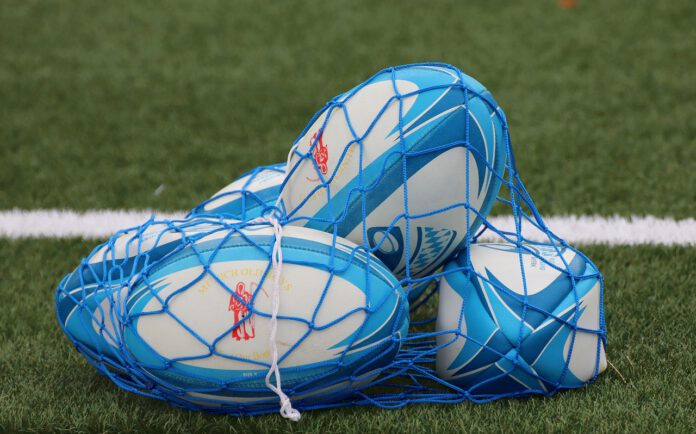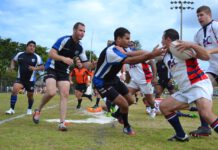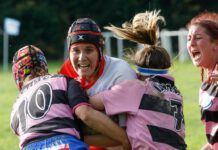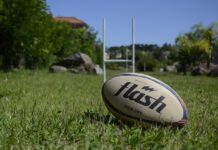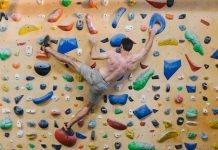Wales’s World Cup campaign lasted only a week longer than England’s but it was a qualified success rather then a review-inducing flop, further proof that they are more skilled at climbing the foothills of Europe than scaling the mountains of the southern hemisphere.
The eight years of the Warren Gatland era were distilled into the last three weeks of the tournament: steel, focus, determination and sheer bloody-mindedness were enough to topple England at Twickenham but at the point when lungs were bursting, legs were cramping up and minds were running on autopilot, they needed more against Australia and South Africa. Typically they came up fractionally short.
As the Wales team bus was driven out of the stadium on Saturday evening, with the players given permission to have a night out in London to mark the end of four physically gruelling months, the New Zealand squad started warming up at the Millennium Stadium. But for Duane Vermeulen’s legerdemain and Fourie du Preez’s speed of thought, the men in red might have been having an early night in their hotel in Weybridge rather than returning to it in the early hours, before a semi-final against the All Blacks that would very probably have been a stage too far, an afternoon when guts and grit would not have been enough.
Related: Wales pay price for not using their nut to crack South Africa sledgehammer | Dean Ryan
As Gatland reflects on the tournament and plots the next four years, he knows, as he has done since arriving in Wales at the end of 2007, where improvement is needed – decision-making under pressure and a creative touch – but it is one thing to get a side that had the durability of a cheap piece of DIY kit to compete on equal terms physically with the best in the world, another to match them mentally.
Gatland, in the early years of his reign, tried to empower his players, giving them greater responsibility and a tactical input, but he found that the longer the rein he gave them, the less comfortable they were. They responded better to knowing exactly what they had to do and so the coaching team have developed a squad that is formidably fit and so strong collectively that Wales are able to absorb the loss of players but, as a consequence, moments of match-turning individualism are rare.
Wales do not have the capacity to think their way to the finish line against the might of the southern hemisphere and they are hardly alone there among the European elite who need to stop counting the money they make from the Six Nations and work out ways of making it fit for purpose. What is the point of everyone here going on about the World Cup for four years but doing nothing to prepare players properly for a tournament that is materially different from the mulch served up every February and March?
South Africa may look as if they have just emerged from the set of Jurassic Park but Du Preez’s try was not only worthy of winning a quarter-final, it was also the difference between two sides who were physical from the start. Australia have long been able to thwart Wales by conjuring a late try and the All Blacks gave a masterclass in finishing in Cardiff last November. James Hook has been a peripheral figure for Wales since the last World Cup, not trusted because he prefers to play from behind the gainline rather than on it, but New Zealand showed against France the value of being comfortable doing both, confounding through variation. The seeds Wales plant are not those of doubt.
Gatland has had the same management team since taking over and has one decision to make immediately, with the defence coach, Shaun Edwards, out of contract and a potential target for England. The attack coach, Rob Howley, and the forwards coach, Robin McBryde, have deals that take in next summer’s three-Test tour to New Zealand and it is the All Blacks that Wales should aspire to, graft flavoured with craft.
“It would be a massive blow if we did not hold on to all of the coaches, ” said the outside-half Dan Biggar, a sentiment echoed by the centre Jamie Roberts. “That consistency has been key for us and we have been like a club side for the last four months that has been special to be a part of.”
Gatland should consider shaking it up and bringing in a fresh voice because Wales are where they were in 2011, if a bit more experienced: fit, hard to beat and selfless but South Africa lite. Their capacity to make light of injuries to key players has been remarkable – this promised to be the tournament when players such as Jonathan Davies and Leigh Halfpenny set their reputations in stone – and they have been well led by Sam Warburton, with Gatland getting the maximum out of his charges.
He needs more if Wales are going to challenge rather than contend in 2019. He was asked to describe his emotional state at the start of his post-match media conference. “That’s a dumb question, ” he snapped back. It was but as the bitter disappointment of coming so close eases into more sober reflection, it is the parts of the game that come down to playing – instinct, skill and touch – rather than coaching that are proving the points of difference. He has done everything within his considerable power. It is now down to his players.


